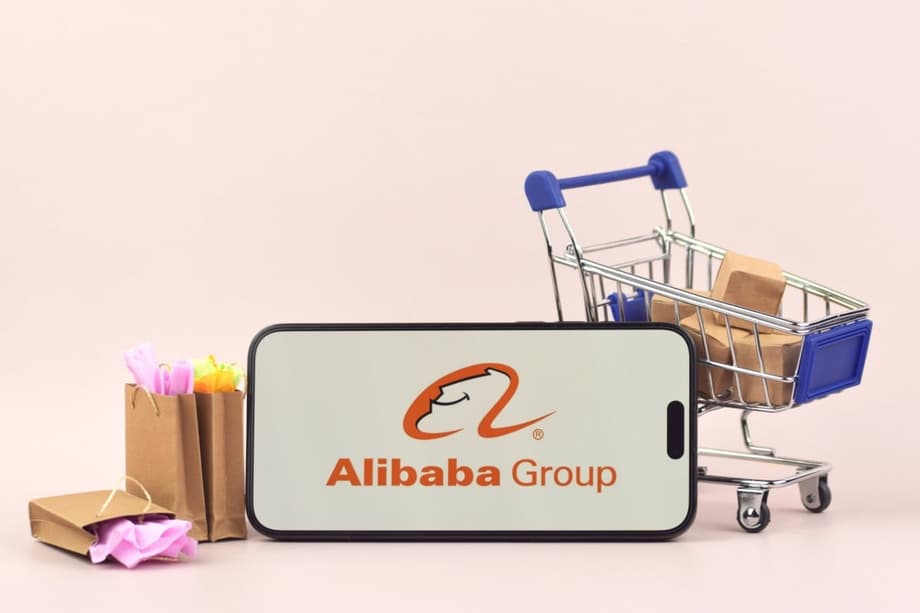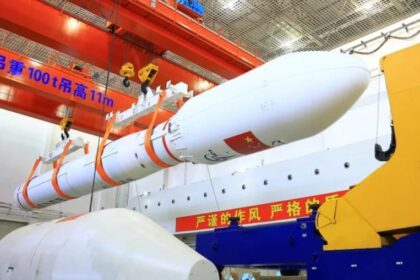A blistering start on Taobao and Tmall
Alibaba Group opened direct sales for the Singles Day shopping festival at 8 pm on Monday, and the first hour told the story. Eighty brands surpassed 100 million yuan in sales, or roughly 14 million dollars, as shoppers rushed for discounts on beauty, electronics and daily essentials. Company figures also showed more than 30,000 brands doubled their takings from a year earlier. The early pace outstripped last year and points to a stronger appetite for deals at China biggest online retail event.
- A blistering start on Taobao and Tmall
- What is driving the surge
- Discounts, loyalty perks and a longer festival
- Electronics and beauty remain the stars
- A tougher consumer environment, but shoppers still show up
- Logistics, returns and sustainability pressures
- Global push and instant retail
- Investor angle and market competition
- At a Glance
Beauty labels once again sprang to the front. Eight brands each crossed the 100 million yuan threshold within the first ten minutes, a sign that prestige skincare and makeup remain a magnet for deal hunters when the clock starts ticking.
Consumer electronics surged on the back of fresh flagship phones. Apple iPhone 17 and Xiaomi 17 series, both launched in September, helped push traffic and conversions. Within the first two hours, iPhone sales on Apple official Tmall store exceeded the full day total for the same period last year, according to Alibaba. Hot accessories and devices also drew heavy interest. AirPods 4, Apple Watch S11, Xiaomi 17 Pro Max and the Nintendo Switch each generated more than 10 million yuan in the first hour.
The launch night momentum followed an active presale phase. In the first hour of presales, 35 brands passed 100 million yuan and 1,802 brands saw their turnover double, setting a fast base for the opening of direct sales.
What is driving the surge
Several forces converged to power the fast start. New hero products gave shoppers a reason to upgrade, direct price cuts and coupon subsidies sharpened value, and platforms rolled out a longer sales window that lets consumers plan bigger baskets. The biggest shift sits under the hood. Alibaba embedded generative artificial intelligence into the core of Taobao and Tmall, changing how search results surface and how recommendations match intent.
Alibaba says its Qwen large language models, developed by Alibaba Cloud, are now woven into the platforms that handle hundreds of millions of daily product queries. The company reports a 20 percent improvement in the relevance of complex searches, a 12 percent increase in return on merchants advertising spend and a 10 percent lift in click through rate for certain recommendation scenarios. Small gains at this scale can move billions of yuan in gross merchandise value during peak periods.
Alibaba vice president Zhang Kaifu, who heads applications for the company e-commerce businesses, described why these changes matter for Singles Day and beyond.
“We are spending more resources on search and recommendation, which will have a direct impact on gross merchandise value. The return on our AI investment in e-commerce is worth the cost,” Zhang said.
Consumer facing tools are part of the shift. A personal shopping assistant helps users compare items and assemble lists, while Snap and Shop lets a shopper upload a photo and receive suggestions ranked by price and quality. Several of these features ran public tests in recent months and drew tens of millions of active users. The scale of the main event gives Alibaba its first full deployment across the flagship platforms.
Discounts, loyalty perks and a longer festival
The offers are designed to land cleanly in a price sensitive market. Taobao and Tmall are issuing 50 billion yuan in coupons to members of the 88VIP loyalty program, targeted at higher spending users, alongside 15 percent direct discounts on selected products for all shoppers. Platforms have trimmed complicated stacking rules and shifted toward straightforward price cuts, which lowers friction at checkout and reduces confusion for first time buyers.
Tmall president Liu Bo framed the event as the anchor for brand growth and pointed to AI driven tools as the next lever for efficiency.
“Double Eleven presents the most significant opportunity for brands throughout the year, and its role in driving business growth is irreplaceable and increasingly vital. We are betting on AI to help merchants improve product quality and operations, and to give consumers a better experience,” Liu said.
This year brings the longest Singles Day season on record. Major platforms began promotions as early as the first half of October, stretching what started as a 24 hour extravaganza into nearly four weeks of rolling deals. That broader window has become a battleground as rival platforms, including JD, Pinduoduo and ByteDance Douyin, chase early engagement and try to lock in baskets before shoppers split their spend across apps.
Subsidies play a larger role, as platforms and merchants add coupon pools to energize conversion. Analysts caution that heavy couponing can prompt higher rates of partial cancellations after purchase, when shoppers buy extra items to unlock threshold discounts then cancel items they do not want. That dynamic, alongside free return policies, can show up in margins even when headline order values rise.
Another shift is how platforms talk about the event. Since 2022, leading companies have stopped releasing a single gross merchandise value figure. Shopper counts, category growth and brand milestones now carry more weight. Independent estimates suggest the wider event across platforms grew strongly last year, helped by a longer schedule and fiercer price competition, although direct comparisons are harder when the calendar stretches.
Electronics and beauty remain the stars
Early results confirm the core mix that has defined Singles Day in recent years. Phones and accessories lead big ticket tech. Premium skincare and makeup anchor the top of beauty. Both categories convert quickly at the opening bell, where limited time discounts and limited stock bundles create urgency and push early hour milestones.
iPhone 17 and Xiaomi 17 series fuel electronics demand
Apple and Xiaomi set the pace for electronics this season. The iPhone 17 launch drew a wave of upgrade buyers who had waited for holiday pricing. Within two hours, sales of iPhone through Apple official Tmall store surpassed the full day total recorded during the same period last year. Accessories followed suit, with AirPods 4 and Apple Watch S11 each clearing the 10 million yuan mark in the first hour. Xiaomi 17 Pro Max joined the leaders, and a gaming favorite, the Nintendo Switch, showed enduring appeal with its own eight figure hour.
Beauty brands retain their pull
Eight beauty brands topped 100 million yuan within the first ten minutes, a rapid start that reflects both brand loyalty and the power of special sets and giftable bundles. Last year, dozens of beauty names also crossed the 100 million yuan line across the extended window, supported by live streaming rooms that push recommendations and limited offers. The formula remains familiar. Deep discounts on refills and boxes, exclusive early access, and a heavy push from key opinion leaders keep beauty at the front of the pack.
A tougher consumer environment, but shoppers still show up
The strong opening comes against a complex backdrop. Consumer confidence has been uneven as the property market works through a prolonged downturn and households remain cautious on big commitments. That caution has fueled a shift toward value. Discount focused platforms have picked up share, and even the largest players have adopted deeper coupons and simpler pricing to keep carts full.
Yaling Jiang, founder of the consultancy ApertureChina, said many buyers are prioritizing value over everything else as price sensitivity spreads across income groups.
“We are at the peak of a consumption downgrade. People are so deep in a discount mindset and they feel the need to save every yuan they can,” Jiang said.
Policy support is giving durable goods a lift. A national trade in subsidy program valued at 150 billion yuan is encouraging upgrades, especially for energy efficient appliances. Last year, that backdrop helped larger ticket items, with categories like air conditioners, robot vacuums and smart toilets ranking among the fastest growing on major platforms. The current festival is tapping the same drivers as households hunt for rebates and combine them with Singles Day discounts.
At the same time, some of the fastest rising categories sit far from appliances. Collectible toys and hobby goods have been on an upswing, reflecting growing communities for anime, comics and gaming. As consumers seek small comforts and affordable joy, merchants are expanding assortments in these niches and using live streams to reach fans directly.
Logistics, returns and sustainability pressures
Handling a surge of orders across weeks puts strain on logistics networks even as platforms plan months in advance. Delivery companies add temporary staff and extend shifts to hit promised timelines. The volume of packages also raises environmental questions. Cardboard boxes, plastic wraps and protective packaging pile up across warehouses and neighborhoods, which intensifies calls for greener materials and better recycling programs each November.
Returns are the other challenge that does not make headlines. Generous policies help conversion, yet high return rates can compress margins for merchants and platforms. Analysts say threshold based coupons can encourage shoppers to over order to unlock a bigger discount, then cancel items minutes later. Platforms are responding with clearer offer rules, better size guides, image search to match products more precisely and automatic restocking systems to speed the reverse flow. Alibaba logistics arm has also continued to scale capacity to smooth peak season operations and reduce bottlenecks in both outbound and inbound legs.
Global push and instant retail
Alibaba is taking the Singles Day brand beyond its home market. The company says the 2025 promotion will extend to 20 international markets, a bid to turn the event into a coordinated shopping season for overseas consumers as well. Details remain limited, but the direction aligns with the company focus on growing its international commerce as a second engine.
Inside China, instant retail is entering the holiday for the first time at scale. Taobao Instant Commerce is now woven into the campaign, connecting 37,000 brands and 400,000 offline stores. The model pairs online ordering with nearby inventory in supermarkets, pharmacies and specialty shops, which brings many purchases to the doorstep in under an hour in large cities. For merchants, the link promises higher utilization of offline stock during the peak and introduces neighborhood stores to new customers online.
This blending of channels is changing the shape of Singles Day. A share of the holiday basket, from cosmetics to snacks to daily necessities, can now arrive the same day, which keeps shoppers on platform once the initial rush ends. It is also a direct answer to rivals that have built strong quick commerce operations and want to capture small basket orders that used to flow to hypermarkets or convenience stores.
Investor angle and market competition
Alibaba leaders argue that AI improvements are already paying off. The reported gains in search relevance, ad efficiency and recommendation quality suggest that the platform can find demand more precisely and monetize traffic more effectively without pushing promotions ever deeper. At the scale of Singles Day, even a small percentage improvement translates into meaningful sales for merchants and better unit economics for the platform.
Competition remains intense. Discount first rivals keep adding subsidy pools and creators on short video apps are turning live commerce into a daily habit for younger users. That pressure influences pricing strategy across the ecosystem. It also changes the way big events are judged. Since headline GMV is no longer disclosed, investors and brands will watch engagement indicators instead, such as the number of active buyers, repeat purchase rates, fulfillment speed and return ratios.
Another theme to watch is the global mix. Alibaba has been growing its international commerce and logistics footprint, and overseas revenue has climbed as a share of the company total. Extending Singles Day promotions into more markets would lift brand awareness and could create a second holiday wave timed to local calendars. The success of that push depends on logistics, local partnerships and how well AI powered discovery translates across languages and shopping cultures.
At a Glance
- Direct sales opened at 8 pm with 80 brands crossing 100 million yuan in the first hour on Taobao and Tmall.
- More than 30,000 brands doubled sales compared with the same time last year.
- Eight beauty brands surpassed 100 million yuan within the first ten minutes.
- Apple iPhone sales on the official Tmall store in the first two hours exceeded the full day total for the same period last year.
- AirPods 4, Apple Watch S11, Xiaomi 17 Pro Max and the Nintendo Switch each generated over 10 million yuan within an hour.
- Alibaba deployed Qwen AI models across search and recommendations, reporting higher relevance, a 12 percent boost in ad returns and a 10 percent lift in click through rate.
- Taobao and Tmall are offering 50 billion yuan in 88VIP coupons and 15 percent direct discounts on selected items for all shoppers.
- The festival has stretched into a four week season as platforms chase early engagement and simplify promotions.
- Policy trade in incentives are supporting big appliance upgrades, while collectibles and hobby goods are gaining ground with younger buyers.
- Alibaba is extending promotions to 20 international markets and connecting 37,000 brands and 400,000 offline stores to instant retail for faster delivery.












